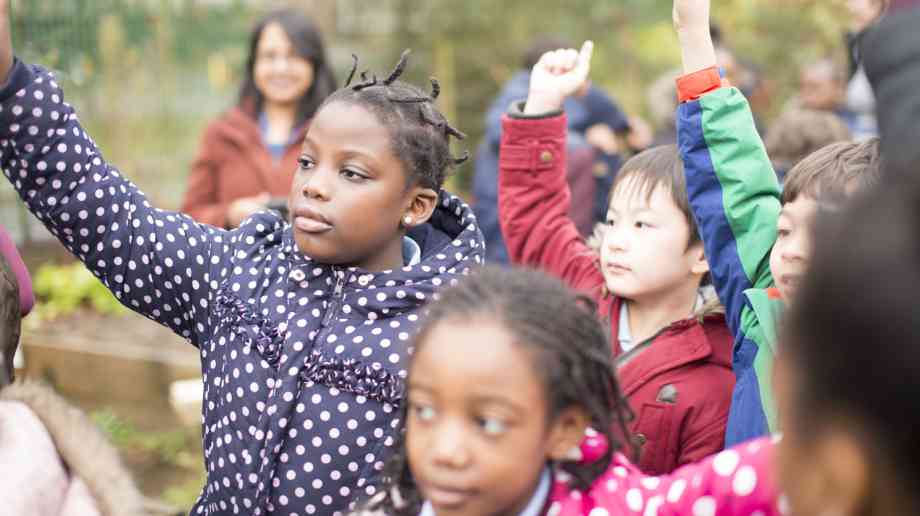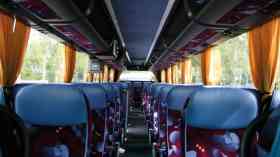
Tackling social injustice through outdoor learning
Heena Dave, programmes and partnerships manager at Learning through Landscapes talks through the My School, My Planet project to help children from communities hardest hit during the pandemic to have access to enriching outdoor learning environments
Learning through Landscapes is a charity deeply committed to its vision of creating a society where the benefits of spending regular time outdoors are valued and appreciated. We believe that outdoor learning, play and connection with nature are fundamental parts of education, at every stage, for every child and young person. In service of our vision and with the backdrop of the COVID-19 pandemic, since June 2020, we have been passionately delivering a £275k pilot project developed in partnership with and funded by the National Lottery Heritage Fund through their COVID-19 emergency fund. The main focus of My School, My Planet is to work with children in schools in disadvantaged communities during the COVID-19 crisis to support their physical and mental wellbeing, helping them re-engage with learning and encourage a greater connection to their natural heritage through the delivery of an outdoor learning programme. We know that children from these communities need the most support, they have been the hardest hit during the COVID-19 pandemic and are less likely to have had access to enriching outdoor learning environments.
Our project, developed in direct response to the findings by the National Foundation for Education Research (NFER) Report on schools’ response to Covid-19 (2020), has been designed to support schools in marginalised and disadvantaged communities by utilising our expertise in outdoor learning to alleviate the pressures on the school workforce. We are actively working to enact the findings from the NFER report who conclude that there is scope for agencies to work together more closely to provide social and welfare support for vulnerable children, especially in deprived areas.
My School, My Planet is currently being delivered by Learning through Landscapes in 49 schools across England, Wales, Northern Ireland and Scotland. In a ground-breaking first, we are leading a network of community-based outdoor learning agencies from the Garden Classroom in London to the STEM Learning Network in Northern Ireland to support children to explore key environmental issues such as biodiversity, climate change and soil degradation. They will be inspired by expert outdoor learning trainers to connect their learning with their own cultural heritage through a carefully sequenced and enriching outdoor curriculum.
A matter of social justice
At LtL we passionately believe that access to outdoor learning for all children is not only essential to a child’s development and wellbeing but is also a matter of social justice. As Spielman, Chief Inspector of Ofsted (2019) highlights, we know that those who are born in more advantaged circumstances get a major head start in life. Spielman continues, the role of education in delivering social justice doesn’t stop at the beginning of children’s education. We know from our curriculum research that it is disadvantaged pupils who are disproportionately affected by the narrowing of key stage 2 and the shortening of key stage 3, or who in various ways become less likely to take more academic subjects in key stage 4. But the consequence of this narrowing is that pupils from disadvantaged backgrounds do lose out on building that body of knowledge that should be every child’s entitlement. Natural England’s own survey (2016) demonstrates that it is children from disadvantaged backgrounds who are less likely to visit urban or rural wild places.
More and more we see that the misconceptions about the benefits of outdoor learning in mainstream education has created a gap between disadvantaged pupils and their more advantaged counterparts in three main areas: a narrowing of the experiences that promote pupil engagement with learning, stimulate curiosity and improve social relations, a decline in physical activity, social wellbeing and school motivation and an increasing distance from nature which reduces young people’s sense of responsibility towards the environment (Passy, Bentsen, Gray & Ho, 2019). In addition to this, at LtL we regularly witness first-hand some of the practical barriers children from disadvantaged communities face when attempting to access the outdoors. For example, the lack of provision of high-quality warm and waterproof clothing has a real impact on the emotional and physical comfort learners experience and is often not seen as a priority in enabling children to participate in outdoor learning.
Learning through Landscapes’ key mission is to address this imbalance through projects like My School, My Planet. We are committed to tackling the challenges brought about by complex socio-environmental issues, both from the context of Black Lives Matter as well as the disproportionate impact COVID-19 has had on Black, Asian and minority ethnic communities. To fully support and work alongside school communities we are working with two new key partners. The Centre for Education & Youth will be undertaking the project evaluation. This highly-specialist think and action-tank will use their expertise to rigorously assess the project’s impact, while the Louder Than Words cultural agency will embed a truly unique approach to inclusivity and diversity throughout the project. We have also listened to the voices of environmental activists from diverse communities to understand the issues faced by young people living in marginalised and disadvantaged communities. As Carley Sefton, our CEO at Learning through Landscapes says: “Connection to the natural environment has never been more important. As we see children and young people return to education post-lockdown I think we will begin to understand the crucial role school grounds play in education, as a place of inclusivity to learn, play and connect with nature.”
This pilot project is currently being delivered in schools and we are eagerly waiting for the evaluation report to understand the true impact of My School, My Planet and will help inform how we go about offering this project to even more schools. So far, we know that this project has been a great source of support for the schools we are working with. In one of our pilot schools, the teacher reported that the project had been a fantastic experience for their children. They reported that the children were focused and engaged when working outside and their teamwork and confidence had grown. One of their children who struggles to form positive relationships due to social and emotional needs, benefited enormously by being actively engaged throughout the whole day and bonding with his classmates. The teacher noted a marked improvement with the child’s social skills and confidence, when working on this project.
With teachers in the most deprived schools over three times more likely to report that their pupils are four months or more behind in their curriculum learning than teachers in the least deprived schools (NFER 2020), it is important for schools to tap into the wider expertise of charities and agencies that are able to support the education sector. Working with charities like Learning through Landscapes, who have a track record for over 30 years of working collaboratively with schools has many benefits, both in developing the learning capacity of schools, but also in enabling impactful access to outdoor learning – an opportunity which is a fundamental part of every child’s education.
Latest News
31/10/2025 - 10:12
A growing number of UK children are now eligible for Free School Meals (FSM), yet most still aren’t taking advantage of them on a daily basis, new research reveals.
30/10/2025 - 01:28
In the wake of the Raac crisis, the DfE spent £5 million on research into the condition of school buildings, which is due to conclude in spring 2026.
30/10/2025 - 01:09
Malmesbury Primary School in Wiltshire has submitted plans for a major expansion, funded by entrepreneur James Dyson.
30/10/2025 - 00:55
Monday's Every Pair Tells a Story campaign to protest to highlight the national crisis in SEND provision.
29/10/2025 - 09:19
Estimated data from the Department for Education reveals that 470,000 pupils under 16s use local authority funded transport to get to school.







